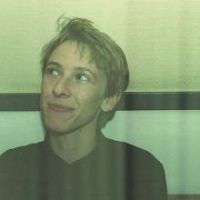
NATALIE WOLCHOVER is an award-winning science writer based in Brooklyn, New York. She has covered the physics beat on staff at Quanta Magazine since the magazine's launch in 2013. Previously, she wrote for Popular Science, Seed, LiveScience, Make magazine and other publications.
Natalie has a bachelor’s degree in physics from Tufts University. During her undergraduate career, she co-authored several peer-reviewed papers in nonlinear optics, gave talks at conferences and did summer research stints at the University of Bath and the University of Oxford. In 2009, after a year's hiatus spent working on an organic farm and living in a tent, she entered graduate school for physics at the University of California, Berkeley. She left during the first year to pursue physics writing, and has never looked back.

I had a very busy and hugely productive three weeks at KITP. What an intellectual haven. My first week was spent with scientists in the program on “Flow in the Deep Earth,” who are striving to develop a coherent picture of the dynamics of our planet. A highlight was joining the group on a field trip to see some tar dikes, where tar has been seeping out of the ground spilling onto the beach for thousands of years. It was a wonderful chance to see geologists, mineralogists and geodynamicists in action, observing and discussing a very unusual natural formation and debating aspects of plate tectonic theory along the way.
During my second and third weeks, I sat in on discussions for the program “Astrophysics from LIGO’s First Black Holes,” and got to witness the birth of a new field. It felt like we were at the center of the universe, working out the new story that LIGO’s data is telling about the cosmos.
In between those activities, there was still plenty of time and inspiration left to work on ongoing writing projects, and to take walks or have lunch alongside the Pacific Ocean, steps away from KITP.
I found both the permanent and visiting scientists to be very welcoming and generous with their time. One piece of advice for future writers-in-residence, which was passed on to me by an alumnus and by director Lars Bildsten, is to give a talk as early as possible in the course of your stay. As an outsider to the scientific communities you’ll be trying to infiltrate, you’ll notice a big difference in people’s reception of you when they know what you’re about. Another bit of advice is to be bold, and to ask scientists for interviews even when they seem busy. They’ll end up getting as much out of it as you do.